Gopsons prints rare 2000 year-old Indian literature
The Murty Classical Library (MCLI), published by Harvard University Press and endowed with a USD 5.2 million grant from Dr Rohan Murty, is translating forgotten texts of India into English.
27 May 2015 | By Samir Lukka
Award-winning book print firm, Gopsons Printers, has produced 7500 A5 copies of five of the titles which were delivered in two weeks.
Vasant Goel of Gopsons, spoke to PrintWeek India about this “very special project”.
Goel felt this is an important and prestigious project, because, as he stated, "We get to print a challenging series of book. (Also) this is some of the finest researched literature from across all of India." He added, “Reading the first series gave me ”Goosebumps of Joy".
The aim of the MCLI is to have over 500 volumes created over a span of a century. More than 40 titles have already been commissioned.
The PrintWeek India office received a set of books with jackets and a feather leaf motif wrapping around the spine of the book. The notable stand outs were: Abu’l-Fazl’s The History of Akbar, which is the first part of the Akbarnama and deals with the birth and reign of the Mughal emperor. Vasant Goel said, the next volume is due to be printed soon.
The MCLI format is similar to the Loeb Classical Library, launched at Harvard University Press in 1911. The Loeb comprises 525 volumes in Latin and Greek, along with English translations on facing pages. And so, in the Abu’l-Fazl’s The History of Akbar publication the Persian text is set in Nassim, an award-winning typeface designed by Titus Nemeth of TN Typography.
 In addition, the book set contained: Surdas’s Old Hindi Sur’s Ocean, a 1000-page anthology of more than 400 poems. There is also the Therigatha: Poems of the First Buddhist Women, which is translated from Pali, and The Story of Manu by Allasani Peddana in Telugu.
In addition, the book set contained: Surdas’s Old Hindi Sur’s Ocean, a 1000-page anthology of more than 400 poems. There is also the Therigatha: Poems of the First Buddhist Women, which is translated from Pali, and The Story of Manu by Allasani Peddana in Telugu.
The Hindi text for Surdas is set in the Murty Hindi typeface, commissioned for the purpose by Harvard University Press and designed by John Hudson and Fiona Ross of Tiro Typeworks.
According to the MCLI website, “The proportions and styling of the characters are in keeping with the typographic tradition established by the renowned Nirnaya Sagar Press, yet with a deliberate reduction of the typically high degree of stroke modulation. The result is a robust, modern design with clean lines and generously proportioned counters, which ensures optimum readability at both text and footnote sizes.”
Vinutha Mallya, a publishing and editorial consultant, said, “The MCLI breathes fresh life into the many multilingual classics from the Indian subcontinent that have slipped away from our popular imagination. These new, translated editions make the texts accessible, in original and translation, to new readers--both in and outside India."
Mallya added, "The books are also an invaluable treasury for researchers, linguists and translators. It is a mammoth publishing project, under the able guidance of Professor Sheldon Pollack, who has taken forward the work that was started by the Clay Sanskrit Library, of which he was the general editor. The MCLI reveals the rich diversity in language and literature across the many languages that remain alive in modern India, as well as the classical languages Sanskrit and Pali."
Rohan Murthy, the founder of MCLI, is a distinguished computer engineer at Harvard – the first junior fellow to be elected to Harvard’s elite Society of Fellows from that discipline in decades – embarked on this journey because “I understood how woefully under-educated I was".
Technical specifications of the MCLI publications
Title: MCLI series (2014-15)
Plates: TechNova Thermal CTP
Workflow: Kodak Prinergy
Best practices that was adhered: Standard In-house manufacturing process at Gopsons
Ink: Seigwerk Tempo Max Star Plus
Paper: Text paper is Enso Cream, Board is Smurfit, and Wibalin for PPC
Pre-press: 175 LPI for cover, the text is black only
Press: KBA 74 -five-colour for cover; and KBA RA 105 – two or two for text
Post-press: Sewn hard cover and paperback
Finishing: All Pantone for cover, ends, PPC, Soft touch lamination plus gold foil stamp
Art: CMYK x Pantone specially made for the series
Most Difficult Aspect of the Job: The cover and jacket had to be printed and finished to maintain consistency across title for current run, and to maintain the details to match the same shade next year and onwards
Technical highpoint: Matching the jacket covers.
Additional features: The series will use same materials throughout its production, every year
Gopsons Printers: Titled the PrintWeek India Book Printer of the Year 2009
This news was published on 26 May, 2015.


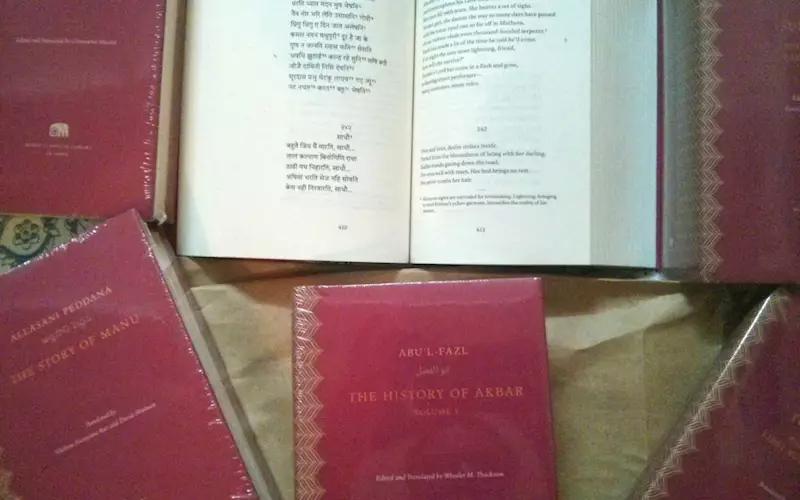

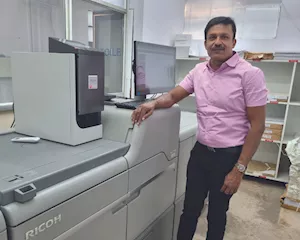
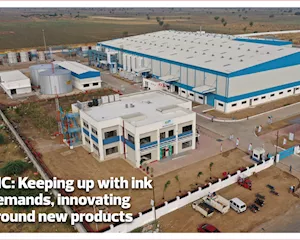

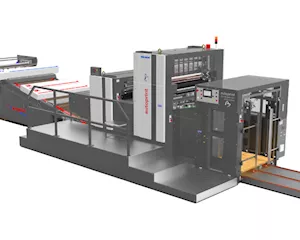
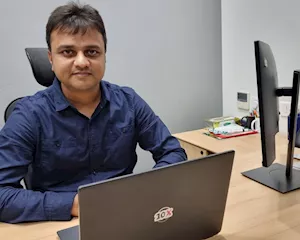






 See All
See All